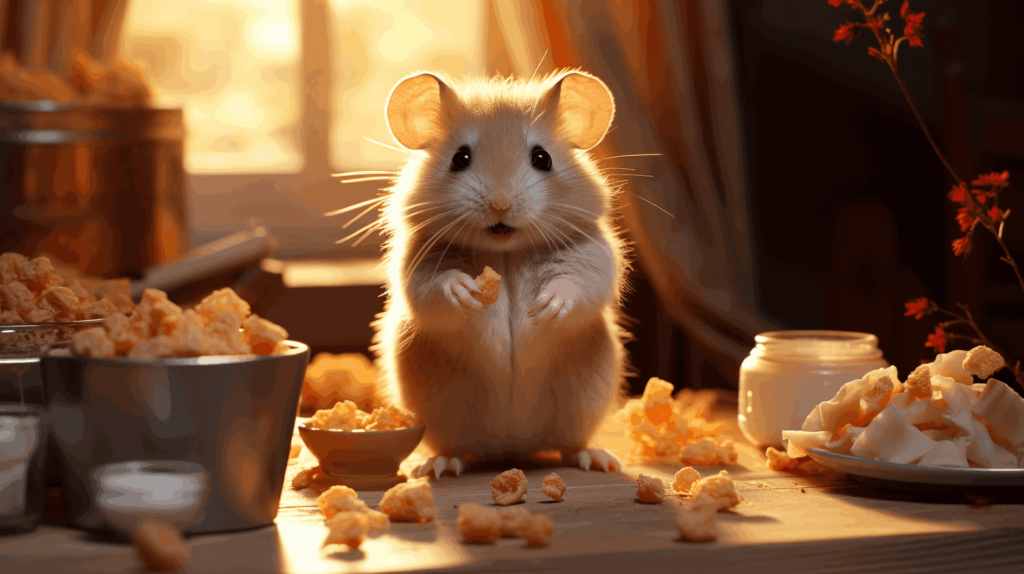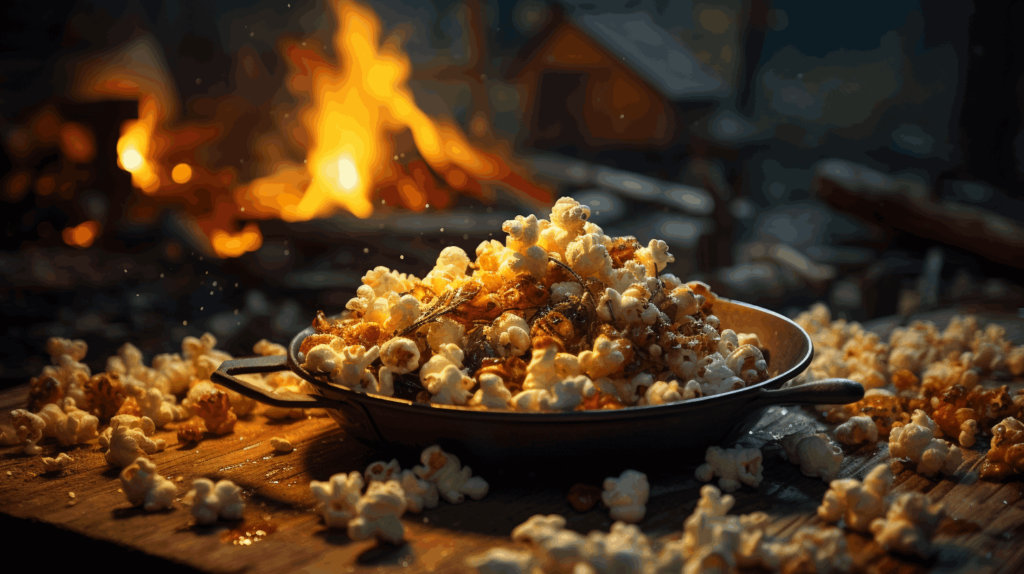Popcorn has long been a popular snack among humans, but can turtles partake in this crunchy treat? Before feeding our shelled companions a handful of popcorn, it is essential to consider the potential risks.
In this article, we will explore the consequences of including popcorn in a turtle's diet and provide alternative food options that are both safe and beneficial. By prioritizing their digestive health and natural needs, we can make informed decisions that promote the overall well-being of our turtle friends.
Key Takeaways
- Feeding turtles popcorn presents a serious choking risk and can cause digestive issues.
- Turtles should be fed soft and easy-to-digest foods such as worms, algae, snails, and leafy greens.
- Unpopped popcorn kernels and regular corn should also be avoided as they can lead to digestive problems.
- Turtles' bodies are not designed to digest high-cellulose foods like popcorn, so it is best to stick to foods that they can easily digest for their overall well-being.
The Choking Risk of Popcorn for Turtles
The potential choking risk of popcorn for turtles necessitates avoiding its consumption to ensure their safety and well-being. Turtles have a tendency to eat their food quickly, increasing the chances of choking on various food items, including popcorn. Even partially popped popcorn kernels can be painful for turtles to swallow whole, as they lack the ability to properly chew their food like humans.
Furthermore, the hard texture of popcorn kernels makes them difficult for turtles to digest, and they can expand in the stomach, causing digestive issues. Feeding turtles popcorn kernels can lead to serious problems in their digestive system, and continued consumption can result in more than just a tummy ache.
It is important to prioritize the health and safety of turtles by offering them soft and easy-to-digest foods as alternatives to popcorn.
Difficulty in Chewing and Swallowing Popcorn for Turtles
Several potential issues arise when turtles attempt to chew and swallow popcorn due to their inability to properly masticate the kernels.
- Turtles have a quick eating habit, increasing the risk of choking on various foods, including popcorn.
- Popcorn kernels that do not pop completely can be painful for turtles to swallow whole.
- The hard texture of popcorn kernels makes them difficult for turtles to digest properly.
Feeding turtles popcorn can lead to serious problems in their digestive system, including digestive issues and potential blockages. Turtles are not built to digest high-cellulose foods like popcorn, and it is not part of their natural diet.
To ensure their overall well-being, it is important to avoid feeding turtles popcorn and instead opt for soft and easily digestible foods such as worms, algae, snails, and leafy greens.
Digestive Issues Caused by Popcorn for Turtles
Popcorn can cause digestive issues for turtles, such as blockages and discomfort, as they struggle to properly process the hard and high-cellulose kernels. Turtles have a difficult time chewing and swallowing popcorn due to their inability to properly break down and digest the hard texture. The kernels can expand in the stomach, leading to digestive problems and potential blockages.
Turtles' bodies are not designed to digest high-cellulose foods like popcorn, which can result in serious digestive issues and discomfort. It is important to avoid feeding turtles popcorn and instead provide them with a diet that consists of soft and easy-to-digest foods such as worms, algae, snails, beetles, berries, leafy greens, fish, and vegetables.
Feeding turtles appropriate foods will help ensure their overall well-being and prevent any potential digestive complications.
Serious Problems in Turtles' Digestive System From Popcorn Consumption
Feeding turtles popcorn can lead to serious problems in their digestive system, such as blockages and discomfort, as they struggle to properly process and break down the hard and high-cellulose kernels. Turtles' bodies are not built to digest high-cellulose foods like popcorn, and continued consumption can result in more than just a tummy ache for these creatures.
To ensure the well-being of turtles, it is important to avoid feeding them popcorn or any other high-cellulose foods. Instead, opt for soft and easy-to-digest treats such as worms, algae, snails, beetles, and berries. Leafy greens, fish, and vegetables are also enjoyed by turtles.
It is crucial to provide treats that are high in calcium and vitamins, low in carbohydrates and sugar, and moderate in protein for their overall health.
Tummy Ache and Beyond: Consequences of Feeding Turtles Popcorn
One of the major consequences of feeding turtles popcorn is the potential for more than just a single tummy ache, as the hard and high-cellulose kernels can lead to serious digestive issues. Turtles have a difficult time digesting foods that are not part of their natural diet, and popcorn falls into this category.
The hard texture of popcorn kernels makes them difficult for turtles to chew and can result in painful swallowing or choking. Additionally, the high cellulose content of popcorn can cause the kernels to expand in the stomach, leading to digestive problems. Continued consumption of popcorn can result in more severe issues in turtles' digestive systems.
Therefore, it is important to avoid feeding turtles popcorn and opt for foods that are more suitable for their digestion and overall well-being.
Ideal Treats for Turtles: Soft and Easy-to-Digest Options
Soft and easy-to-digest options, such as worms, algae, snails, beetles, and berries, are ideal treats for turtles. These treats provide turtles with the nutrients they need while being gentle on their digestive system. Worms, in particular, are a great source of protein for turtles. Algae offers a variety of essential vitamins and minerals.
Snails and beetles are high in calcium, which is important for the growth and development of turtles' shells. Finally, berries provide turtles with antioxidants and natural sugars in moderation. These treats should be given sparingly to avoid overfeeding and obesity.
Calcium and Vitamin-Rich Treat Ideas for Turtles
Turtle owners should consider incorporating calcium and vitamin-rich foods into their pets' diet to ensure optimal health and well-being. Calcium is essential for the development and maintenance of strong bones and shell, while vitamins play a crucial role in supporting the immune system and overall vitality.
Some excellent sources of calcium for turtles include dark, leafy greens such as kale and collard greens, as well as calcium-rich vegetables like broccoli and bok choy. Additionally, incorporating vitamin-rich foods such as carrots, bell peppers, and berries can provide turtles with the necessary nutrients for a balanced diet.
It is important to consult with a veterinarian or reptile specialist to determine the specific dietary needs of your turtle and to ensure that you are providing a well-rounded and nutritious diet.
Moderation Is Key: Fruits, Fish, and Vegetables for Turtles
When considering the diet of turtles, it is important to remember that moderation is key, as including a variety of fruits, fish, and vegetables can provide them with essential nutrients. Turtles are omnivores and require a balanced diet to thrive.
Fruits such as berries can be given sparingly due to their sugar content, while leafy greens and vegetables should be a staple in their diet. Fish, such as worms and snails, are excellent sources of protein for turtles. Incorporating these foods into their diet can support their overall health and well-being.
However, it is crucial to avoid feeding turtles high-cellulose foods like popcorn, as they can lead to choking, digestion issues, and nutrition imbalances. By providing turtles with a diverse and balanced diet, we can ensure their optimal health and happiness.
Risks of Unpopped Popcorn Kernels for Turtles
It is essential to be aware of the risks associated with feeding turtles unpopped popcorn kernels, as they can cause serious problems in their digestive system and should be avoided.
Turtles, unlike humans, cannot chew their food properly, making it difficult for them to digest hard-textured foods like popcorn kernels. When consumed, these kernels can expand in the stomach, leading to digestive issues and potential blockages. Continued consumption of unpopped popcorn kernels can result in more than just a tummy ache for turtles.
It is important to provide turtles with a diet that is appropriate for their digestive system, consisting of soft and easy-to-digest foods such as worms, algae, snails, beetles, and berries. Feeding turtles foods that they can easily digest is crucial for their overall well-being and should be prioritized over offering them high-cellulose foods like popcorn.
Regular Corn: a Minimal Option for Turtles With Caution
In the context of discussing the risks of feeding turtles high-cellulose foods, such as popcorn, it is important to exercise caution when considering regular corn as a minimal option. While turtles can eat regular or sweet corn, it should be kept to a minimum due to its high phosphorus levels and insoluble fiber content.
Regular consumption of corn can lead to metabolic disease in turtles. However, if corn is given to turtles, it should be removed from the cob and boiled to soften the texture for easier digestion. It is important to note that butter and salt should not be added to corn for turtles.
Conclusion
In conclusion, it is clear that popcorn is not a suitable food choice for turtles. The risks of choking, difficulty in chewing and swallowing, and digestive issues make it an unsafe option.
Instead, turtle owners should prioritize providing calcium and vitamin-rich treats, fruits, fish, and vegetables in moderation. The potential consequences of feeding turtles popcorn should be taken seriously to ensure their overall well-being.
So, why compromise their health when there are healthier alternatives available?


